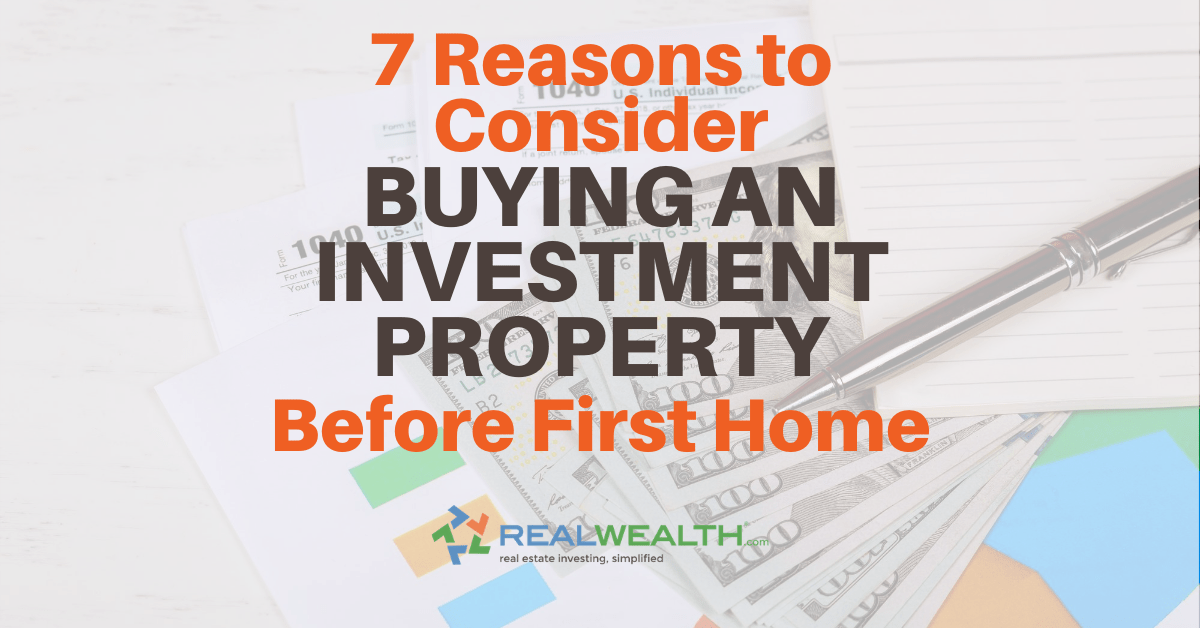For many people, the dream of homeownership begins with buying a cozy first home as a personal sanctuary. But what if there’s a smarter way to enter the property market? Increasingly, we’re seeing first-time buyers choose to purchase an investment property instead of a home to live in. This strategic move can unlock unique financial opportunities, but it isn’t without its challenges. If you’ve been pondering this path, here’s everything you need to know about buying an investment property before your first home.
Why Consider Buying an Investment Property First?
Investing in property is a time-tested way to build wealth, and many buyers are beginning to rethink the traditional homeownership model. Here’s why purchasing an investment property first could be the right choice for you.
1. Generate Passive Income
An investment property creates a steady income stream through rental payments. This income can help cover the mortgage, taxes, and maintenance expenses while building equity over time. Essentially, your tenants help pay off your asset.
2. Greater Affordability
When buying an investment property, you aren’t necessarily purchasing where you want to live. Instead, you can focus on areas with lower property prices or higher rental demand, making it easier to enter the market without overstretching your finances.
3. Tax Benefits
Investment properties often come with tax perks. Mortgage interest, property management fees, maintenance costs, and even landlord insurance are tax-deductible expenses. These deductions can significantly ease the financial burden associated with property ownership.
4. Accumulating Equity for Your Dream Home
By owning an investment property, you can build equity over time. When the property value increases, you can leverage this equity for a down payment on your future dream home.
5. Getting Ahead of the Market
Property prices tend to rise over time, so buying an investment property now could allow you to enter the market earlier. Delaying the purchase of your own home while earning and growing your property portfolio can help you stay ahead of property inflation.
Things to Consider Before Investing
While the benefits are enticing, buying an investment property before your first home requires careful planning and consideration. Here’s what you should keep in mind before taking the plunge.
1. Financial Readiness
Lenders typically have stricter requirements for investment properties than residential homes. You may need a higher credit score, a larger down payment (usually 15% to 25%), and strong cash reserves to cover potential months without rental income.
2. Market Research
Success in property investment largely depends on location. Look for areas with high rental demand, low property taxes, good infrastructure, and proximity to amenities like schools, public transport, and shops. Research tools like Zillow or Realtor.com can help you identify promising locations and evaluate rent trends.
3. Costs Beyond the Mortgage
Operating an investment property involves extra costs like landlord insurance, maintenance, property management fees, and taxes. Experts recommend setting aside at least 1% of the property’s value annually for maintenance and unexpected repairs.
4. Time Commitment
Owning an investment property isn’t entirely passive. From screening potential tenants to handling maintenance requests, becoming a landlord requires time and effort. If you’re unable or unwilling to commit, hiring a property manager could cost you 8-12% of the rental income.
5. Understanding Risks
All investments come with risks, and real estate is no exception. Rental market fluctuations, tenant issues, and declining property values can impact your returns. Be prepared with a financial cushion to weather unexpected challenges.
6 Steps to Buying Your First Investment Property
Here’s a step-by-step guide to help you get started on your property investment journey.
Step 1: Set Clear Goals
What’s your primary objective? Are you looking to generate passive income or grow equity to purchase your dream home? Clarifying your goals will guide your decisions.
Step 2: Get Your Finances in Order
Before approaching a lender, ensure your credit score is strong and your debt-to-income ratio is manageable. Save for a down payment and consider additional savings for emergencies.
Step 3: Research the Market
Scout locations with a strong rental demand, low crime rates, access to amenities, and potential for property value growth. Real estate platforms like Trulia and Rentometer can help you compare rental values and market trends.
Step 4: Secure Financing
Explore your financing options. Traditional mortgages typically offer favorable rates, but you might also qualify for alternative loans depending on your circumstances. Be prepared for stricter loan requirements when applying for an investment property mortgage.
Step 5: Choose the Right Property
Look for properties that are low-maintenance, attract long-term tenants, and fit within your budget. Single-family homes and condos in high-demand neighborhoods are often great starting points for first-time investors.
Step 6: Build a Support System
Partnering with knowledgeable professionals like real estate agents, property managers, or accountants can make the process smoother. They’ll ensure you stay on top of legal, financial, and market-related considerations.
Is Buying an Investment Property Before Your First Home Right for You?
This strategy isn’t for everyone, and the decision ultimately depends on your personal goals, finances, and appetite for risk. It’s critical to evaluate your long-term plans and consider whether becoming a landlord aligns with your lifestyle and aspirations.
If you’re someone who prioritizes financial growth and flexibility over immediate homeownership, buying an investment property before your first home could be a game-changer. Not only does it offer an opportunity to build wealth over time, but it can also pave the way for owning the home of your dreams in the future.
Final Thoughts
Buying an investment property before your first home is a bold move, but it can be a financially rewarding strategy when done right. By focusing on the right property, understanding the market, and managing your finances wisely, you can set yourself up for long-term success.
Are you ready to start your investment property journey? Talk to a real estate expert today to identify the best opportunities that match your goals. Start small, stay informed, and watch your property portfolio grow!








